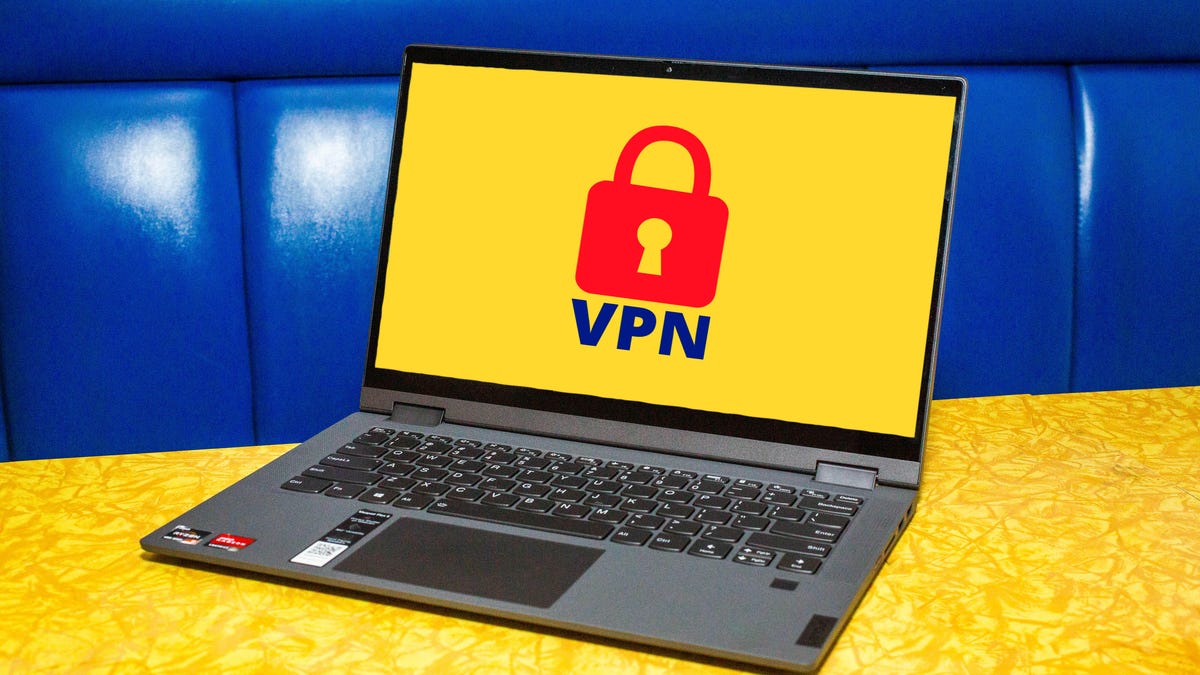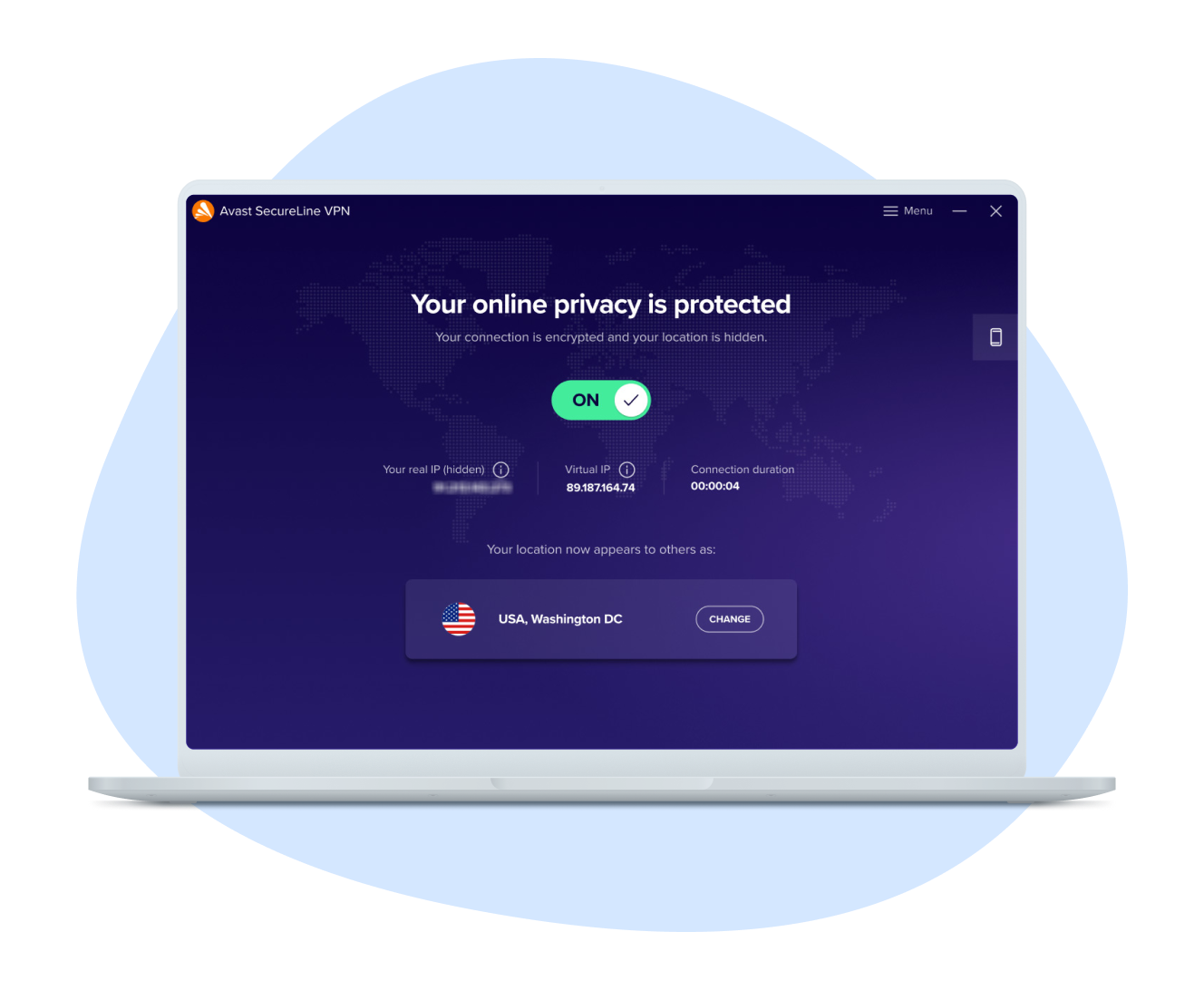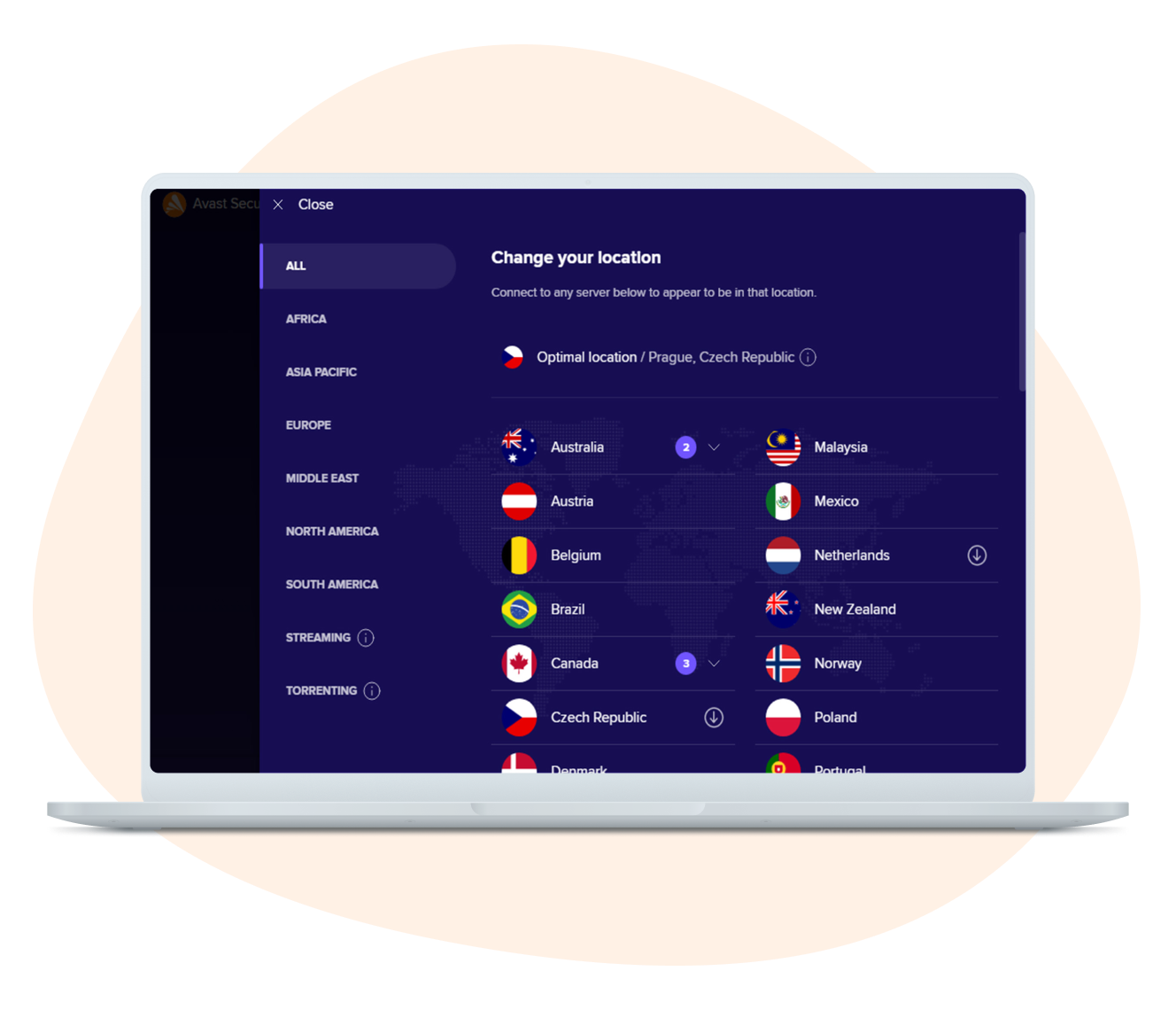Best Vpn for Laptop: Unleash Ultimate Online Security
In today’s digital age, protecting your online privacy is crucial. A VPN is the best tool for laptop security.
Whether you’re working remotely, streaming content, or simply browsing the web, a VPN ensures your data stays private and secure. But with so many options available, finding the right VPN for your laptop can be overwhelming. Why choose a VPN for your laptop?
It encrypts your internet connection, making it difficult for hackers to access your information. This is especially important when using public Wi-Fi networks, which are often not secure. A VPN also allows you to access geo-blocked content, giving you more freedom online. With increasing cyber threats, having a reliable VPN is essential for peace of mind. In this guide, we’ll explore top VPNs that offer the best balance of security, speed, and ease of use for laptops. Dive in to discover which VPN suits your needs.

Credit: www.cnet.com
Top Vpns For Laptop Security
Protecting your laptop is vital in today’s digital world. VPNs provide an extra layer of security for your online activities. Whether browsing, streaming, or working, a VPN keeps your data safe. Choosing the right VPN can be challenging. Knowing what features to look for helps make the best choice.
Leading Features To Consider
Encryption is key. Look for VPNs with strong encryption protocols. AES-256 encryption is a good standard. This ensures your data remains private and secure.
Speed matters. A VPN should not slow down your internet. Choose VPNs with fast servers and unlimited bandwidth.
Compatibility is essential. Ensure the VPN works on your laptop’s operating system. Most VPNs support Windows, macOS, and Linux.
Privacy policies should be clear. Select VPNs with strict no-log policies. This means your activities are not recorded or shared.
Server locations are important. More locations offer greater access and flexibility. Choose VPNs with servers in multiple countries.
User Reviews And Ratings
Read reviews from other users. They provide insights into the VPN’s performance and reliability. Look for comments on speed, ease of use, and customer service.
Ratings can guide your decision. High ratings often indicate satisfied users. Check ratings on trusted sites like Trustpilot or Google Play.
User feedback can highlight potential issues. Pay attention to common complaints or praises. This helps assess if the VPN meets your needs.
Join forums or online communities. Engage with others who use VPNs for laptops. Their experiences can offer valuable advice and recommendations.

Credit: www.avast.com
Why Vpns Matter For Laptops
Laptops are essential tools in our everyday lives. They hold sensitive data, facilitate work, and provide entertainment. VPNs, or Virtual Private Networks, are crucial for laptops. They offer security and privacy. With increasing online threats, VPNs are vital for protecting data. They ensure safe browsing and prevent data theft.
Protecting Sensitive Data
VPNs encrypt the data sent from laptops. This encryption keeps personal and work-related information safe. Hackers can’t access encrypted data easily. Without encryption, data can be intercepted during transmission. VPNs create secure connections, safeguarding financial and personal details. They act as a shield against cyber threats.
Ensuring Privacy Online
VPNs hide your online activity from prying eyes. Browsing without a VPN exposes your IP address. This can lead to unwanted tracking. VPNs mask your IP, making it hard to trace your online movements. They help maintain privacy and prevent data collection by websites. Online privacy is a right, and VPNs defend this right effectively.
Key Features Of A Reliable Vpn
When choosing the best VPN for your laptop, focusing on key features is crucial. A reliable VPN ensures a smooth, secure, and private online experience. But how can you tell if a VPN is truly reliable? Let’s delve into two essential features: speed and performance, and encryption standards.
Speed And Performance
Have you ever tried streaming your favorite show only to be plagued by buffering? VPN speed is vital for seamless online activities. A good VPN will not slow down your internet connection significantly. Some VPNs even optimize speed by connecting you to servers closer to your location.
It’s worth testing a VPN’s performance during peak hours. Consider using speed test tools to measure the VPN’s impact on your internet speed. Make sure to read user reviews to gauge real-world performance. These reviews can provide insights into how the VPN performs under different conditions.
Encryption Standards
Encryption is the backbone of VPN security. Strong encryption standards protect your data from prying eyes. Look for VPNs that use AES-256 encryption, a standard used by governments and security experts worldwide. This ensures robust protection of your sensitive information.
Have you ever worried about cyber threats when connecting to public Wi-Fi? A VPN with strong encryption gives you peace of mind. Check if your VPN offers features like a kill switch, which blocks internet traffic if your VPN connection drops. Such features add an extra layer of security to your online activities.
So, what matters most to you when choosing a VPN for your laptop? Is it the speed for streaming, or the encryption for security? Your priorities will guide you to the best choice. Always remember, a reliable VPN is about balancing speed, performance, and security.
Comparing Free Vs Paid Vpns
Choosing between free and paid VPNs for laptops can be confusing. Free VPNs often lack advanced security features, while paid ones provide robust protection and faster speeds. Opt for a paid VPN for reliable and secure browsing on your laptop.
When choosing a VPN for your laptop, there’s a big decision: free or paid? Free VPNs attract many users. No cost is appealing. Yet, paid VPNs offer more features. Understanding the differences helps in making a smart choice. This section will guide you through the pros and cons of each option.Pros And Cons Of Free Vpns
Free VPNs can be a great starting point. They don’t require payment. This is perfect for budget-conscious users. Many free VPNs are easy to download and use. They often have simple interfaces. But there are trade-offs. Free VPNs might limit data usage. This can interrupt your browsing. They may also have slower speeds. Server options are often limited too. Security can be a concern. Some free VPNs sell user data. Ads can be frequent and annoying.Benefits Of Paid Vpns
Paid VPNs offer more reliability. They often have faster speeds. Users enjoy unlimited data. More servers are available worldwide. This gives better access to global content. Paid VPNs usually provide stronger security. They protect user data with high-level encryption. Customer support is often better. Paid services rarely show ads. They offer extra features. These include kill switches and multi-device support. Investing in a paid VPN often means peace of mind.Installation And Setup Tips
Setting up the best VPN for your laptop ensures privacy and secure browsing. First, choose a reliable VPN provider with good reviews. Download and install the app, then follow the setup instructions. Connect to a preferred server, and your online activities become private and secure.
When setting up a VPN on your laptop, the process should be smooth and straightforward. However, getting the installation right is crucial for optimal performance and security. Whether you’re a tech enthusiast or a newbie, understanding the installation and setup process can save you a lot of time and hassle. Here’s a guide to help you get your VPN up and running efficiently, along with tips on tackling any issues that may arise.Quick Setup Guide
First, choose a reputable VPN service that suits your needs. Download the application from the official website or your app store. Be wary of suspicious links or third-party sites. Once downloaded, open the installer and follow the on-screen instructions. Most VPNs require just a few clicks to install. You’ll typically need to agree to terms and conditions, select a destination folder, and choose additional settings. After installation, launch the VPN app and log in with your credentials. Many apps offer an easy “Quick Connect” button. Use it to connect to the fastest server available.Troubleshooting Common Issues
Sometimes, even after following the setup instructions, things don’t work out. If your VPN isn’t connecting, check your internet connection first. A weak or unstable network can cause problems. If you’re experiencing slow speeds, try switching to a different server. Servers closer to your location usually offer better performance. Are you seeing error messages? Double-check your login details and subscription status. A simple typo can prevent connection. Have you ever faced an issue where the VPN doesn’t start with your laptop? Make sure the app is set to launch at startup. You can find this option in the app settings. Remember, every problem has a solution. Don’t hesitate to reach out to customer support if needed. They can provide assistance and help resolve any technical glitches. Have you encountered any unique challenges while setting up your VPN? Share your experiences and solutions in the comments below!
Credit: www.avast.com
Vpns For Different Operating Systems
Choosing the right VPN is crucial for your laptop’s security. Each operating system has unique requirements. A VPN must work seamlessly with these systems. Compatibility ensures optimal performance and security. This section explores VPN options for Windows and Mac OS.
Windows Compatibility
Windows users need VPNs that support multiple versions. The VPN should work smoothly with Windows 7, 8, and 10. A user-friendly interface is also important. Look for VPNs that offer simple installation and configuration. Speed and stability are key features. They ensure a smooth browsing experience. Additionally, the VPN should provide strong encryption. This keeps your data secure from prying eyes. A reliable kill switch is a plus. It protects your privacy if the VPN disconnects.
Mac Os Integration
Mac OS users require VPNs with seamless integration. The VPN should support the latest Mac OS updates. It must offer a clean, intuitive interface. Ease of use is essential for Mac users. The VPN should have robust security features. These include strong encryption and privacy policies. Connection speed is another crucial aspect. A fast VPN ensures uninterrupted internet access. The VPN should also include a reliable kill switch. This feature safeguards your online privacy. Choose a VPN with responsive customer support. They assist with any technical issues you encounter.
Assessing Vpn Security Protocols
Choosing the best VPN for your laptop involves examining security protocols. This ensures your online activities stay private and secure. A VPN’s security protocol determines how your data is encrypted and transmitted. Understanding these protocols helps you make an informed decision. This section explores key aspects of VPN security protocols.
Evaluating Encryption Types
Encryption is a core element of VPN security. It protects your data from unauthorized access. Most VPNs use AES-256 encryption. This is a standard for high security. It ensures your data remains private. Some VPNs offer older encryption types. These are less secure and should be avoided.
Understanding Kill Switch Functionality
A kill switch is essential for maintaining privacy. It disconnects your internet if the VPN fails. This prevents data leaks. Without a kill switch, your real IP address may be exposed. Always ensure your VPN includes this feature. It’s a critical component of VPN security.
Choosing The Right Vpn For You
Finding the best VPN for your laptop can be challenging. There are many options available, each with unique features. The right VPN depends on your specific needs and preferences. Let’s explore what to consider when choosing a VPN.
Factors To Consider
First, think about security. A good VPN should protect your data. Check if it uses strong encryption. Also, consider speed. You want a fast connection for streaming and downloading. Look at server locations. More servers mean better coverage.
Pricing is important too. Some VPNs offer free trials. Others have money-back guarantees. Look for user-friendly interfaces. This makes the VPN easier to use. Finally, check customer support. Good support helps solve problems quickly.
Personalizing Your Vpn Experience
Different people have different needs. Choose a VPN that fits your activities. If you stream often, pick one with fast speeds. For frequent travelers, choose a VPN with global servers. This ensures access to content worldwide.
Consider device compatibility. Make sure the VPN works on your laptop. Some VPNs allow multiple device connections. This is useful for families. Also, look for customization options. Some VPNs offer settings adjustments for advanced users.
Conclusion
Choosing the right VPN for your laptop is crucial. It enhances your online privacy and security. A reliable VPN offers fast connection speeds. It provides access to global content with ease. Remember to prioritize security features when selecting. User-friendly interfaces make VPNs easy to use.
Subscription plans vary, so consider your budget. Free trials can help you make informed decisions. Regular updates ensure optimal performance and protection. With the right VPN, your laptop stays secure. Enjoy safe browsing and keep your data private. Protect yourself online with confidence.
Your digital world deserves the best care.
